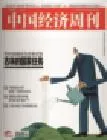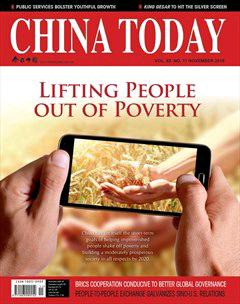On Chinese Media
On Chinese Media
Where to Study? - A Question Perplexing China’s Middle Class

China News Weekly Issue No. 36, 2016
A Love for Separation is a much discussed TV series in China that tells the stories of middle school students studying abroad. Many middle-class families relate to the topic, whether or not they have had this experience.
Today, Chinese students have more choices. Yet middle-class parents are becoming more dissatisfied with the traditional education system and anxious about their children’s prospects. As the new and old philosophies collide, parents question the way the traditional education system forces their children to be ruthlessly competitive from such a young age. They are consequently determined to find a solution that will enable their children to escape this rigid system.
In 2015, the number of Chinese students receiving secondary education in the U.S. reached 40,000. In the same period, 145,000 students were studying in China’s international schools in preparation for future study abroad. Nevertheless, middle-class parents will not be reassured unless society changes its ways of assessing people or provides more diversified channels that enable talented people to move upward.
Is the world outside as amazing as they think? Is the traditional education system really that terrible? Anxious parents may not have answers. They just want to find the best way for their children to look forward to a bright future.
Shanghai FTZ Bears Fruit
China set up its first pilot free trade zone (FTZ) on September 29, 2013 in Shanghai. By 2015, the zone had expanded both in area and degree of opening-up. In the past three years, it has borne fruit, and its successful experience introduced to local governments and FTZs in other regions.
The key lies in streamlining administration and delegating government power. Government functions are moreover transforming to give full play to the market, as regards allocation of resources.
By announcing that it will relax current restrictions on investment, Shanghai FTZ has adopted a “negative list” approach that transforms government functions through strengthening post-operational business oversight instead of requiring prior approval.
Shanghai FTZ stresses facilitation of trade and investment, and improving trade regulation systems to expand the scope of opening-up. Innovated regulation systems based on trade facilitation have made great contributions in this regard.
In terms of financial innovation, Shanghai FTZ endeavors, through a prudent attitude and using free trade account as a carrier, to facilitate investment and finance exchange, and improve financial regulation and risk prevention mechanisms.
Traditions Revive

South ReviewIssue No. 20, 2016
Today, traditional Chinese culture is usually showcased in two ways. One is in the revival of traditional etiquette, musical instruments, ceremony, and dress. The other is apparent in the classic literature that provide today’s society with wise and profound philosophies. These two facets constitute small facets of traditional Chinese culture, but nonetheless seem to resonate readily with people in the present day. Meantime, conventions of how we deal with ourselves, others, and society generally has been passed down from old times, and do not change that dramatically. So even though we feel that traditional culture is remote and antiquated, it is hard to eradicate from our genes.
Tradition may be explained in a simple way. If the manner in which you tackle an issue conforms to conventions, you will receive a friendly response from others and feel inner peace. In other words, tradition has evolved into a social order which becomes a value. An intangible authority, the social order is confronted with challenges against the background of dramatic social change.
Whether or not people live a good life is the most direct way of judging a social system. Sometimes we criticize a certain convention and sometimes we uphold it. This is because we realize our life will be better after either changing or maintaining a tradition.
Jilin Leads Rural Integrated Financial Reform

China Economic Weekly Issue No. 38, 2016
Jilin in northeastern China has been appointed the sole provincial-level pilot area to carry out rural integrated financial reform. This decision is aimed at tackling the country’s three main issues of boosting agriculture, reviving the countryside, and enriching farmers. Moreover, the province has shouldered the important task of developing an inclusive, workable, and sustainable rural finance model which is expected to boost the transformation and upgrade of Chinese agriculture.
The decision was announced last December at an executive meeting of the State Council presided over by Premier Li Keqiang. Zhou Xiaochuan, governor of the central bank, outlined at the meeting the reform roadmap.
The provincial government spares no effort in improving rural financial systems and resolving long-standing conflicts between supply and demand. Furthermore, the reform in Jilin of rural credit cooperatives (RCC) has been enhanced. Thirty RCCs have been transformed into rural commercial banks, accounting for 57.8 percent of the total number of RCCs in the area. In addition, banks are now accessible to local villages and towns, making Jilin one of the leading provinces providing comprehensive financial services in grassroots areas.

